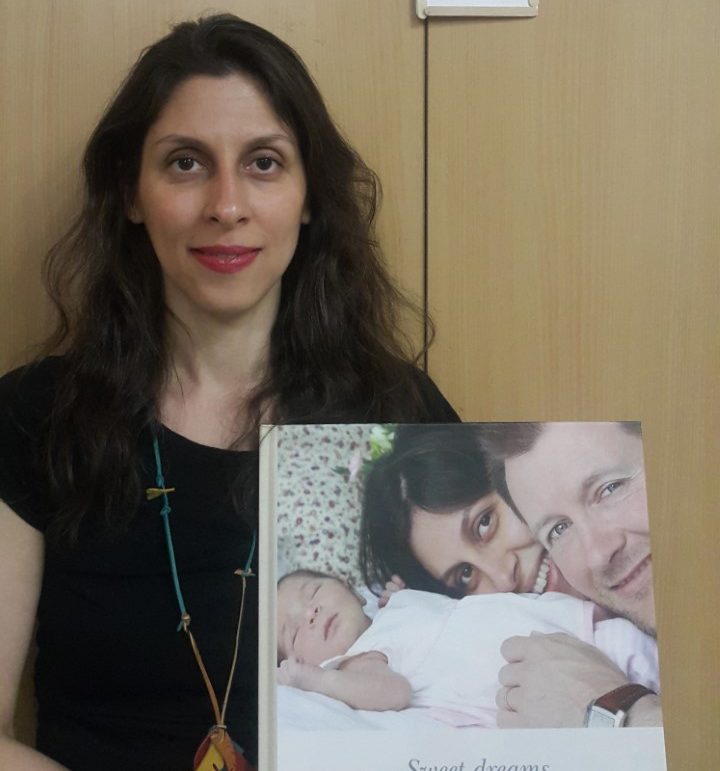
Time for a Different Approach: BBC’s Panorama on Nazanin and Others Unlawfully Detained in Iran
The BBC’s investigative documentary series, Panorama, has shed further light on the link between the UK government’s failure to pay an outstanding debt to Iran and the ongoing arbitrary detention of Nazanin Zaghari-Ratcliffe and others.
The documentary, which offers “the inside story of why it has taken so long to get [Nazanin] and other innocent British prisoners home,” states that Nazanin and other foreign and dual nationals are being held hostage by the Iranian regime.
Nazanin’s husband, Richard Ratcliffe, explained to Panorama that Nazanin has been told explicitly, by three different parts of the judicial system in Iran, that the UK’s payment of its £400 million debt to Iran is the key to her release.
However, the Foreign and Commonwealth Office (FCO) responded: “We don’t recognise any linkage [between the debt and the detention] and it is unhelpful to suggest otherwise. These individuals must be released unconditionally.”
The debt accrued during a 1970s arms deal, in which the UK did not deliver 1,500 tanks to Iran following a change in Iranian leadership during the country’s Islamic Revolution. The British courts have accepted that the debt should be paid, but the interest rate is subject to an ongoing dispute.
The documentary compares the approach of the UK government to that of the US government, which has secured the release of its own nationals arbitrarily detained in Iran through the payment of debts and engaging in prisoner swaps.
The US Special Representative for Iran, Brian Hook, explained that Iran’s hostage taking is “a tool of statecraft. It’s part of Iran’s foreign policy to take people hostage who are innocent and then trade them later.”
Nazanin was arrested on 3 April 2016 by the Iranian Revolutionary Guards while on holiday visiting family. Following a secret and unfair trial she was imprisoned on unspecified charges and has since been separated from her husband Richard and her daughter Gabriella. During her time in prison, Nazanin was held in inhumane conditions and denied crucial medical treatment. Nazanin was temporarily released from prison in March, but she is required to wear an ankle tag and her movements are restricted to a few hundred metres from her parents’ home in Tehran making her release more akin to house arrest. Her health has severely deteriorated since her arrest in 2016.
Iran is obliged to release Nazanin under international human rights law, but it has ignored consistent calls to do so at the national, regional, and international levels.
REDRESS has worked on Nazanin’s case since 2016, advocating for her permanent release by Iran before the United Nations and the FCO. Following a REDRESS submission, the UN Working Group on Arbitrary Detention (UNWGAD) found in 2016 that her detention in Iran was arbitrary, and that “there is an emerging pattern involving the arbitrary deprivation of liberty of dual nationals in Iran.” It requested that Iran release Nazanin immediately and refer the case to the Special Rapporteur on Torture for further investigation. In 2019, the Special Rapporteur on Torture and five other UN experts found that this treatment may amount to torture and urged once more Iran to release Nazanin.
Multiple UN human rights experts, the UK Foreign Secretary, the European Parliament and many other bodies have called for her release.
Richard Ratcliffe told Panorama: “The failure to resolve [the debt] has resulted in Nazanin being taken hostage and resulted in other people being taken hostage. The government has an obligation to deescalate relations with Iran to stop more people being taken hostage.”
Leanna Burnard, Legal Officer at REDRESS, stated: “The Panorama documentary highlights the link between the UK debt and the arbitrary detention of Nazanin and other foreign and dual nationals in Iran. We have urged the government on many occasions to repay the debt, which could be done in the form of humanitarian and medical supplies to address the impact of the Covid-19 pandemic in Iran.”
Whether or not the debt is paid, Iran remains legally obliged to immediately release those who are subject to arbitrary detention and torture.
The documentary concludes: “The UK’s diplomatic efforts to free the hostages haven’t worked. Time, say the families, for a different approach.”
For more information or for an interview, please contact Eva Sanchis, REDRESS’ Head of Communications, on 07857110076 or [email protected].
Photo by Free Nazanin Campaign: Nazanin pictured in her parents’ house in Tehran during her most recent furlough.
